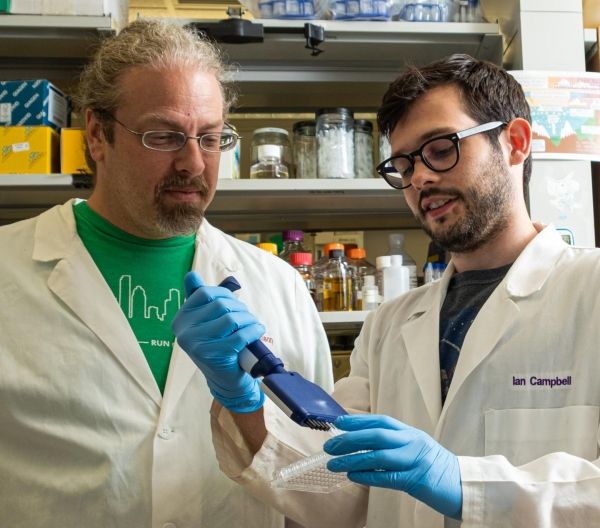Beneath the ocean’s surface, a virus is hijacking the metabolism of the most abundant organism on Earth. That may be of interest to those of us above who breathe.
Rice University scientists analyzed the role of ferredoxin proteins produced when phages alter the ability of Prochlorococcus marinus to store carbon and counter the greenhouse gas effect arising from fossil fuel consumption.
P. marinus is a photosynthetic cyanobacteria that resides primarily in the tropics and subtropics, where an estimated 10-to-the-27 (an octillion) of them use sunlight to produce oxygen and collectively store four gigatons of carbon annually. Some of this carbon provides critical feedstocks for other marine organisms.
But phages are not their friends. The virus strengthens itself by stealing energy the bacteria produces from light, reprogramming its victim’s genome to alter how it transfers electrons.
Read more at Rice University
Image: Rice University synthetic biologist Jonathan Silberg, left, and postdoctoral researcher Ian Campbell led a team that analyzed the role of ferredoxin proteins produced when viral phages alter electron transfer in ocean-dwelling, photosynthetic bacteria that produce oxygen and store carbon. (Credit: Jeff Fitlow/Rice University)


